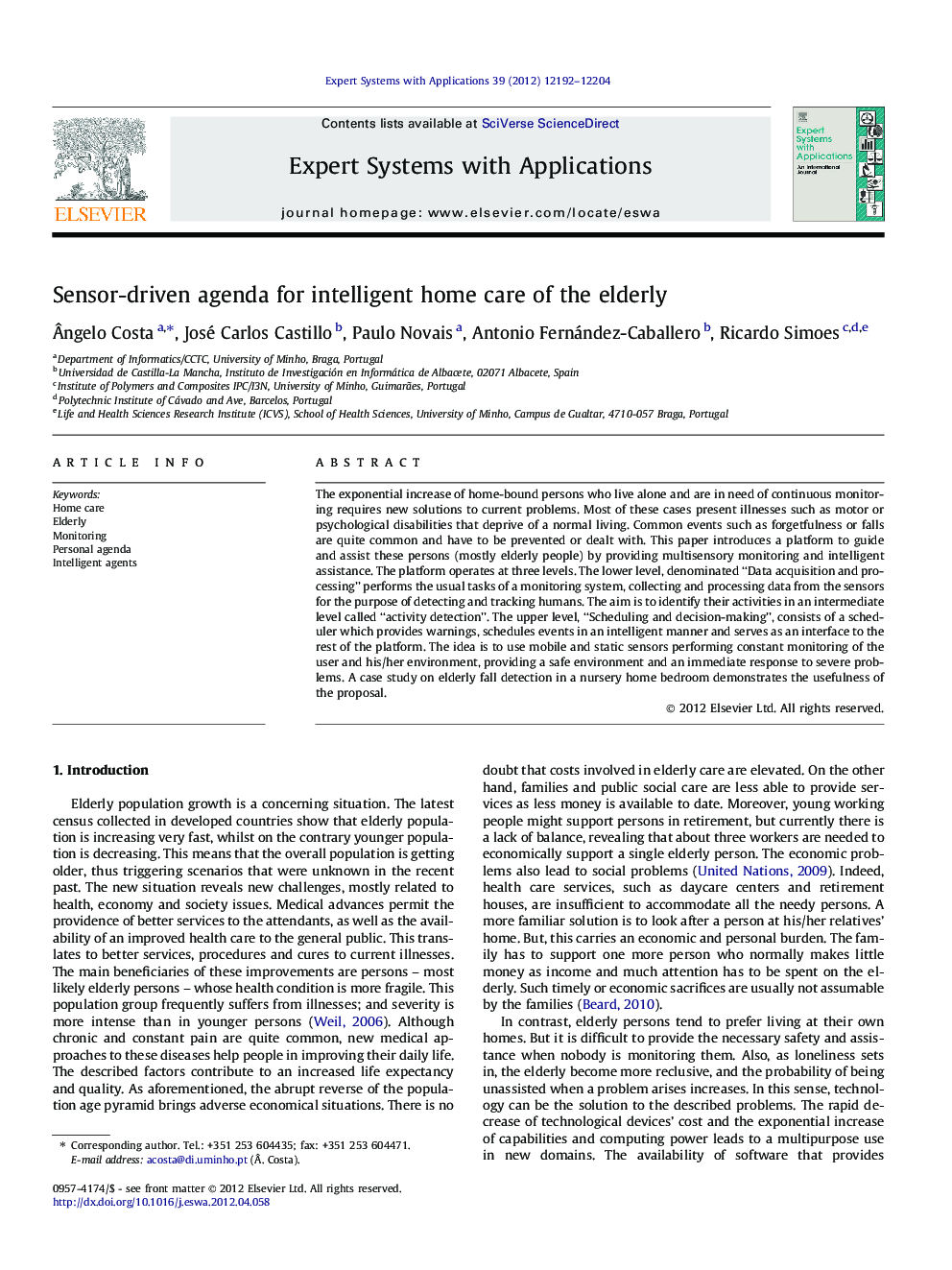| Article ID | Journal | Published Year | Pages | File Type |
|---|---|---|---|---|
| 383427 | Expert Systems with Applications | 2012 | 13 Pages |
The exponential increase of home-bound persons who live alone and are in need of continuous monitoring requires new solutions to current problems. Most of these cases present illnesses such as motor or psychological disabilities that deprive of a normal living. Common events such as forgetfulness or falls are quite common and have to be prevented or dealt with. This paper introduces a platform to guide and assist these persons (mostly elderly people) by providing multisensory monitoring and intelligent assistance. The platform operates at three levels. The lower level, denominated “Data acquisition and processing” performs the usual tasks of a monitoring system, collecting and processing data from the sensors for the purpose of detecting and tracking humans. The aim is to identify their activities in an intermediate level called “activity detection”. The upper level, “Scheduling and decision-making”, consists of a scheduler which provides warnings, schedules events in an intelligent manner and serves as an interface to the rest of the platform. The idea is to use mobile and static sensors performing constant monitoring of the user and his/her environment, providing a safe environment and an immediate response to severe problems. A case study on elderly fall detection in a nursery home bedroom demonstrates the usefulness of the proposal.
► A sensor-driven agenda for intelligent home care of the elderly is proposed. ► An agenda manager and monitoring framework are merged for robust elderly care at home. ► The lower level, denominated “Data acquisition and processing” performs the usual tasks of a monitoring system. ► The activities performed by the elderly are detected in an intermediate level called “activity detection”. ► The upper level, “Scheduling and decision-making”, provides warnings, schedules events and serves as an interface to the platform.
